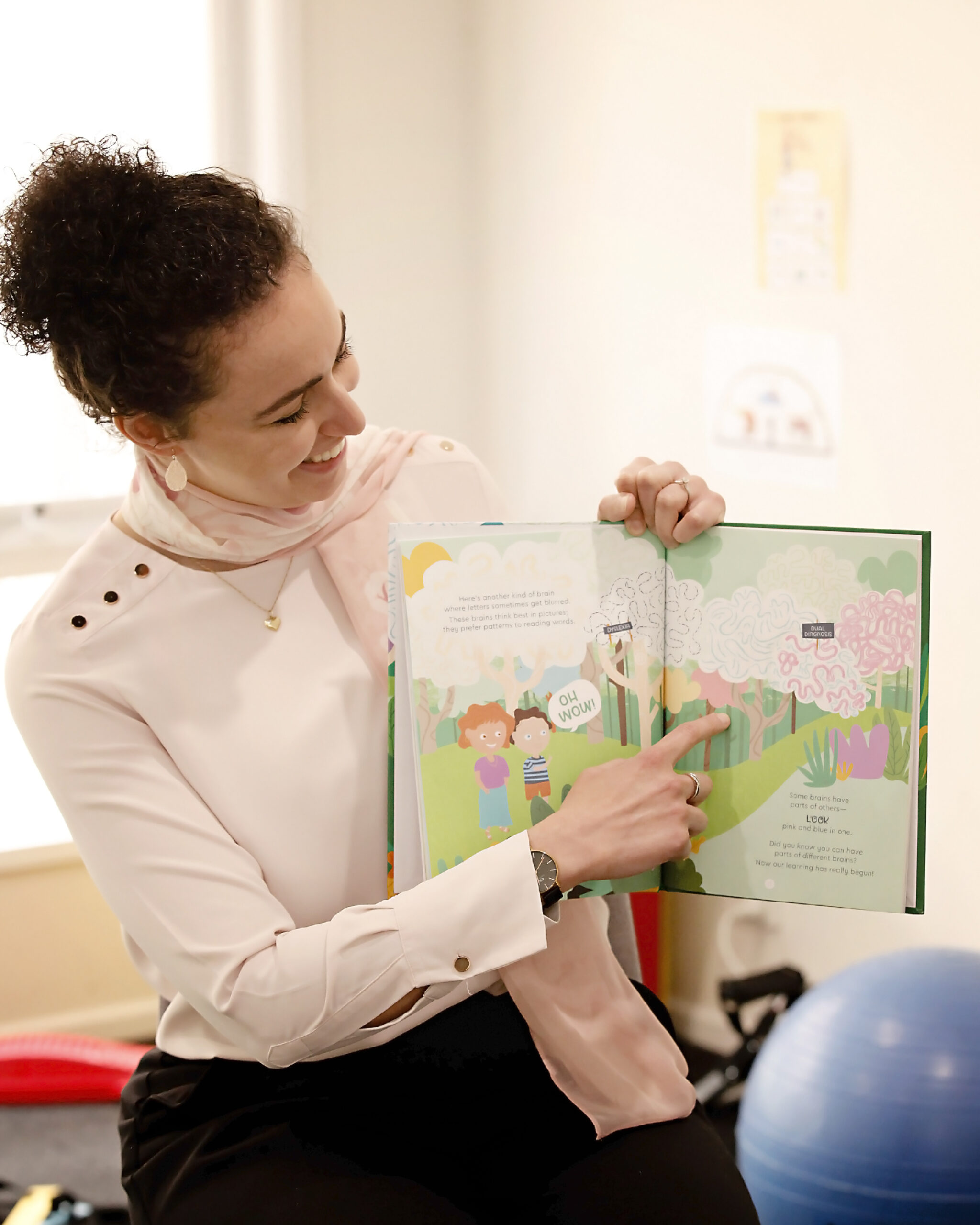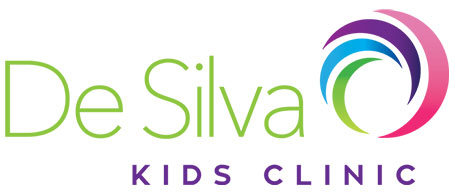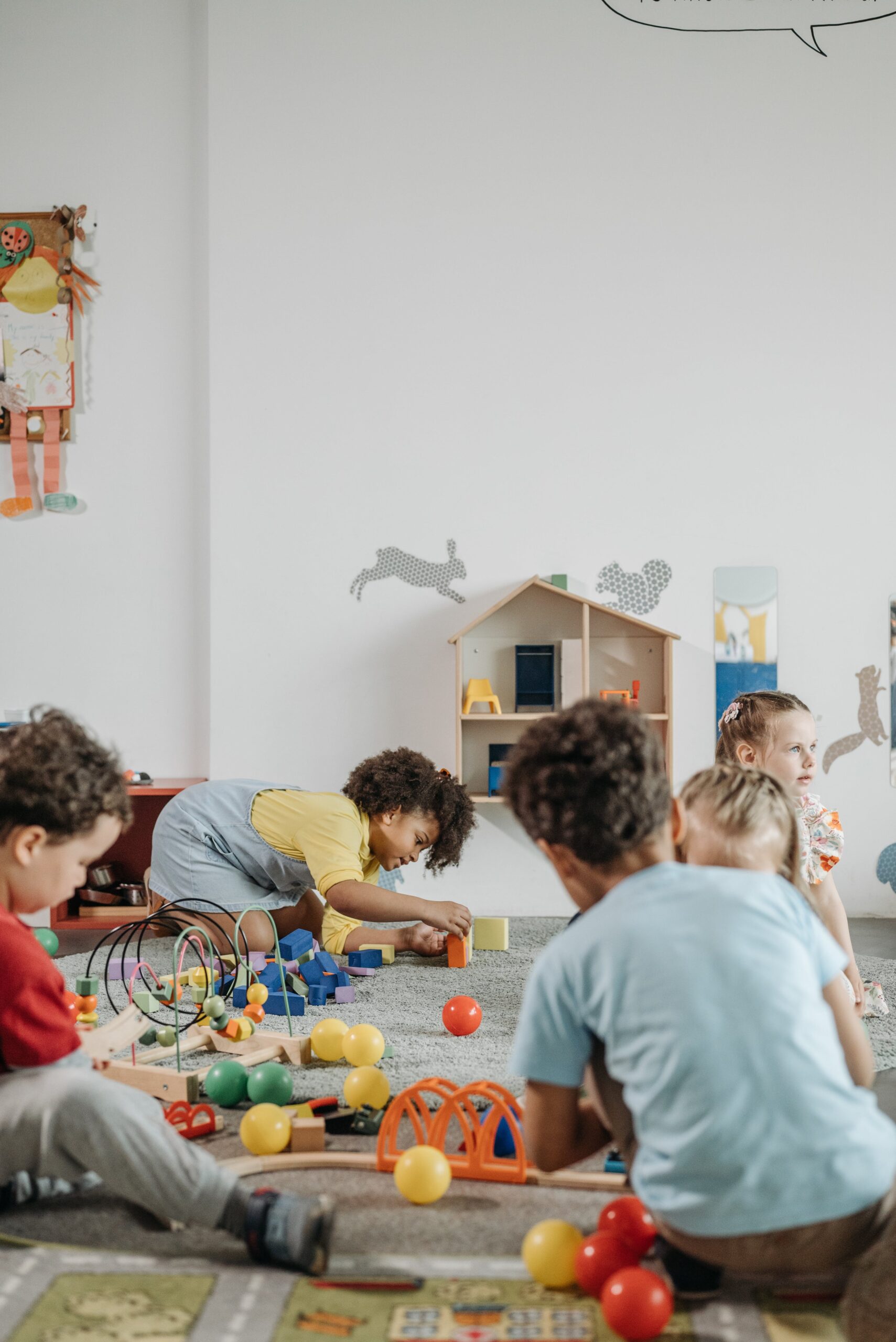
Play for children isn’t a simple pass time, but an important part of their physical, emotional, and cognitive development. It allows them to develop skills about cause and effect, builds on social skills, confidence, creativity, coordination and balance, and allows them to explore feelings and emotions as well as build resistance and coping strategies for challenging situations.
Unstructured free play allows children to create their own story with challenges and uncertainty that is typically unattainable thorough structured play with adults.
| Age (Months) | Pretend Play Milestones |
| 12 months | Beginning to engage in solitary pretend play, such as pretending to drink from an empty cup or talk on a toy phone. |
| 15 months | Explores various objects and toys in imaginative ways, like pushing a toy car and making engine noises. |
| 18 months | Starts to imitate familiar actions and activities, such as “cooking” with play kitchen items or “feeding” a doll. |
| 21 months | Shows more creativity in pretending, like pretending to put a toy to sleep or having a tea party with stuffed animals. |
| 24 months | Engages in more complex pretend scenarios, such as pretending to be animals, superheroes, or family members in imaginative play. |
As children get older they start to participate in cooperative pretend play which allows children to role play and act out scenarios, learning to negotiate, cooperate, and communicate with others. They may take on different roles and make decisions that help express their emotions, fears, and desires in a safe and non-threatening environment. This type of play with others builds resilience, helps process complex emotions and promotes emotional intelligence.
| 2 years | Begins parallel play (plays alongside other children) |
| 3 years | Simple pretend play, like feeding a doll or talking on a pretend phone |
| 3.5 years | Can initiate a strategy to find what they need for their play |
| 4 years | Self-initiating own pretend scenarios, with imaginative themes and characters |
| 5 years | Elaborate made-up role-playing and storytelling with toys and friends |
| 6 years | Begins to combine various elements into imaginative scenarios (e.g., pirates and astronauts) |
| 7 years | Starts to create more detailed and intricate storylines in play |
| 8 years | Incorporates props, costumes, and themes in imaginative play |
These milestones are general guidelines, and individual children may progress at their own pace.
Need some ideas for things to use for unstructured free play? Try the following:
- Cardboard boxes
- Blankets & Pillows
- Chalk
- Playdough or putty
- Wooden spoons
- Sticks
Written by Jade Oakes, Allied Health Assistant at De Silva Kids Clinic.


